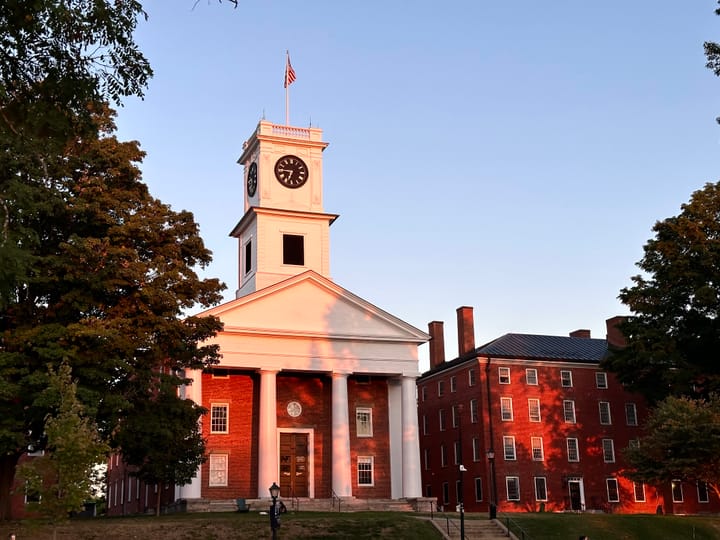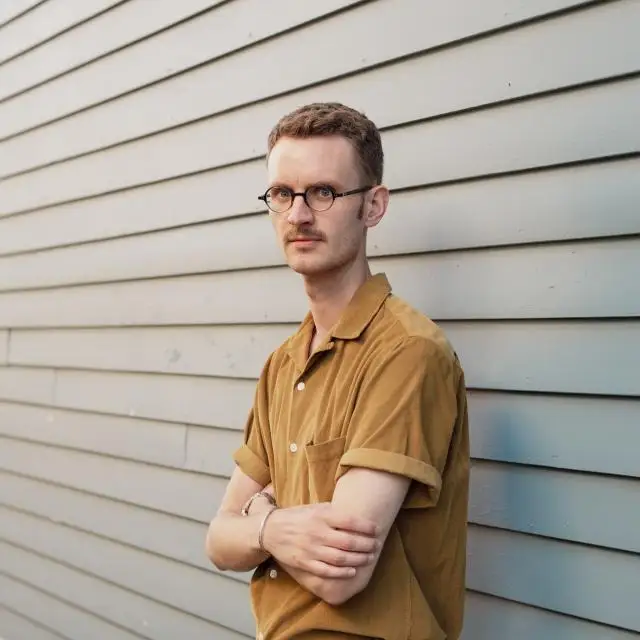Nobel Laureate Joseph Stiglitz ’64 Addresses Failures in U.S. Economic Response to Coronavirus
Joseph Stiglitz ’64, a Nobel Prize-winning economist and Columbia Business School professor, joined trustee David Novak ’91 on April 28 in a virtual panel on the economic impacts of the COVID-19 pandemic, via a live-stream open to the college community. Stiglitz considered the economic consequences for the United States during the virus and his most pressing observations as an economist, including his analysis of the U.S.’s flawed economic response, what the nation can expect for an economic recovery in the future and what individuals may learn from the pandemic.
The talk is the inaugural event in the “COVID Conversations: Thinking Through the Pandemic” series organized by the President’s Office, which is intended to offer alumni and students a wide range of expert perspectives on the coronavirus pandemic. The second talk in the series took place on April 30 and featured Harold Varmus ’61, a Nobel Prize winning cancer researcher who works at the Meyer Cancer Center of Weill Cornell Medicine and as an adjunct professor at the Macaulay Honors College at the City University of New York. He was joined by David A. Kessler ’73, professor of epidemiology and biostatistics at the University of California, San Francisco School of Medicine, and trustee Shirley Tilghman H’08, who served as Princeton University’s president from 2001-2013 and continues to research genetics as a member of the university’s faculty. In Thursday’s installment of the series, the panel focused on the the public health implications of the coronavirus.
In his talk, Stiglitz explored the ways the pandemic has harmed the nation’s economy and criticized the federal government’s response to the crisis. According to Stiglitz, the U.S. government failed to listen to scientists before the virus arrived in the country, leaving little time for federal, state and local governments to prepare.
“Quite frankly, thousands of people have died as an effect of that failure to act in a timely way,” he said. While the government had early access to “a wide body of knowledge” based on the experiences of other countries and historical precedent, it did not utilize this existing knowledge, leaving the U.S. more vulnerable to the pandemic, Stiglitz added.
The government stimulus package, widely known as the CARES Act and signed as law on March 27, “was not a well-designed program,” he explained. As evidence of flaws in the stimulus’ design, he cited that some of the poorest Americans have yet to receive their stimulus checks and may expect them to arrive as late as September.
The government aid package targeted at small businesses, also known as the Paycheck Protection Program (PPP), was especially flawed, Stiglitz said, due to the government’s failure to effectively distribute stimulus money to the businesses most in need. By setting up the facilitation of check distribution through banks, the program created a situation where only the businesses with closest connections to banks — not the ones in need of most help — received their stimulus money in a timely manner, he said.
The federal government spent hundreds of billions of dollars to create a package that ended up being a “disaster,” a package that “was supposed to protect jobs” but “didn’t do that,” Stiglitz said. When later considering the way that our nation will one day look back on its response, Stiglitz predicted that “when history is written, the judgments will be harsh.”
Given the failure of the U.S. to prudently respond to the pandemic, Stiglitz predicted that after the pandemic, “we can anticipate a rocky recovery.” The main reason, he said, is that “capital is being massively misallocated.”
Stiglitz cited higher education as one sector that is central to the U.S. economy but currently receives “almost no money” from the government. He is uncertain about the futures of colleges with smaller endowments and forecasted that not all institutions will make it through the economic crisis.
However, Stiglitz noted that the pandemic may also highlight the importance of higher education. In a later interview with The Student — in which Stiglitz recalled that scallops were his least favorite Val meal — he remarked that the breadth of a liberal arts education, like that provided at Amherst, will be especially essential in a world suddenly realizing the importance of science and public health. “It’s … very clear that we need to think about, how do we get better science into our key areas of public policy decision making?” he said. “That’s a broad issue, and a very liberal arts issue.”
In addition to education, Stiglitz noted that the federal government is not investing enough money in state and local governments. The U.S. needs collective action on every level, but is not allocating money in a way that will support local and state government action, even when “it’s the mayors and the governors that are at the forefront of this fight,” he said in his talk.
Stiglitz’s central prediction was that the lack of equity in investments will leave many sectors of our nation struggling, leaving behind “a more distorted economy, more inequality than we had before” and a longer, tougher recovery path.
Moving to a hopeful message near the end of his presentation, Stiglitz emphasized that the pandemic may help Americans realize the importance of several things: the influence that government has on the economy, the importance of science and the understanding that “we share one planet. And we have to learn about how to … work together to address these global problems.”
Thinking on a more local level in the interview with The Student, Stiglitz remarked that he was thankful for the opportunity to present his talk because “in the current environment, people are reaching out to try to understand what’s going on … our desire to be with others, to talk with others, is being inhibited very badly … people are looking for other ways of engaging with others.”





Comments ()